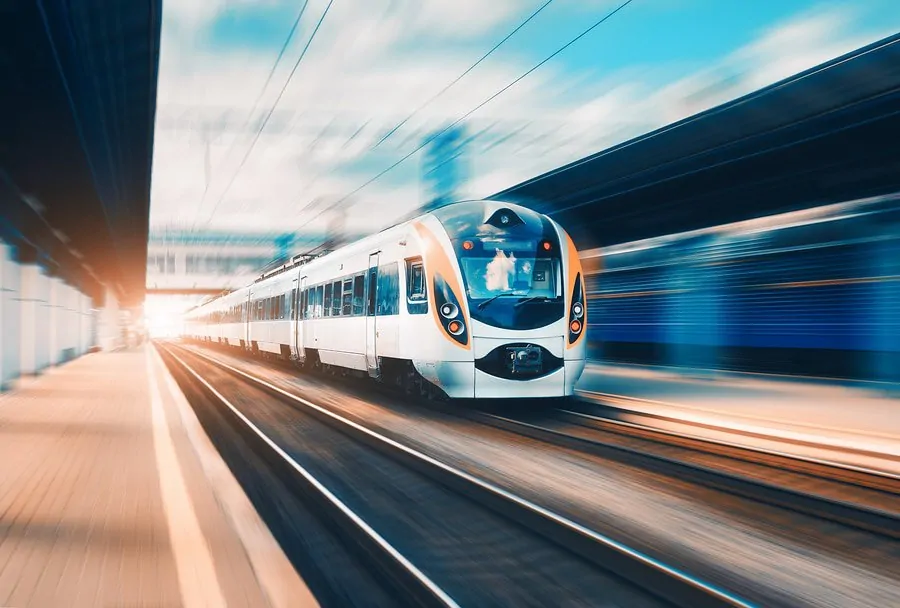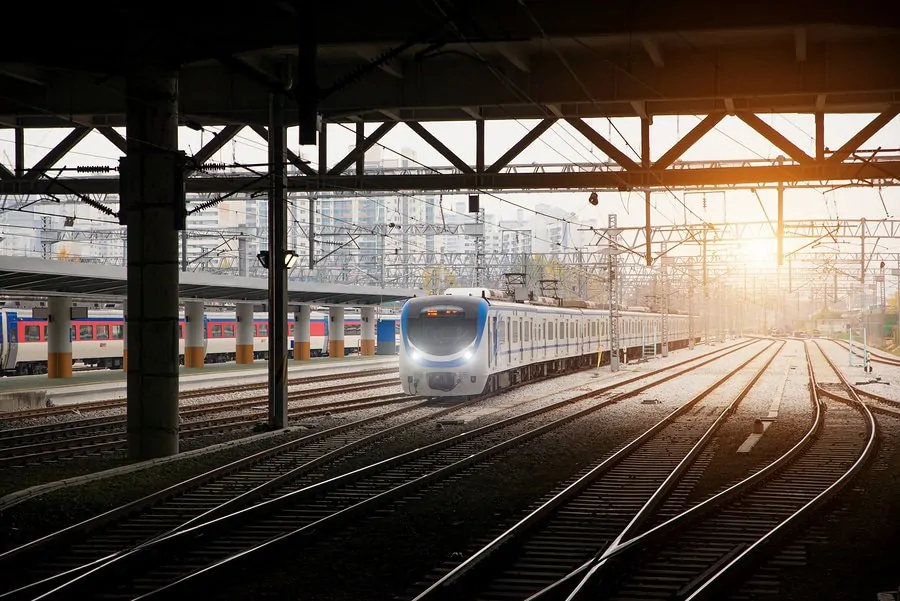Today, we’ll show you how to say “train” in Korean.
A train is a very important form of transportation to help you explore Korea! Read on for vocabulary, example sentences, and fun ways to remember “train” in Korean.
Contents
‘Train’ in Korean
There are two main words for how to say train in Korean. The first is 기차 (gicha) and the second is 열차 (yeolcha). The pronunciation of these words will be easier if you know how to read Hangeul, the Korean Alphabet. It’s easy, you can learn it in less than one hour.
With either word, if you want to turn it into an action verb, you should add -를 타다 (-reul thada) to the word’s ending. This is the basic form for the phrases ‘to take a train’ and ‘to ride in a train’. Both of the words are also fairly interchangeable with each other, and you can use them to make basic sentences in Korean.
So how to remember “train” in Korean? We’ll cover some associations below. Associations are easy ways to help you remember Korean words.
How to remember “train” in Korean
For 기차 (gicha), we’ll use the association of a key for 기 (gi) and cha tea for 차 (cha). We then construct a simple story with these elements.
“On Korean trains, everyone uses keys to stir their cha tea instead of spoons!” (기차 | gicha)
Associations:
“On Korean trains everyone uses keys to stir their cha tea instead of spoons!” (기차 | gicha)
Can you think of a story that would help you remember 기차 (gicha)?
What about associations for 열차 (yeolcha)? You can reuse the cha tea association and 열 (yeol) sounds a little like your. Remember, the association doesn’t have to be exact, it just has to help you remember the keyword, in this case, train.
Here are some useful related vocabulary words. We recommend learning these after you’ve learned the most important Korean words first. It’s the best way to learn Korean fast.
기차편 (gichaphyeon) = railroad service
기차 여행 (gicha yeohaeng) = a train trip
기차 승객 (gicha seungkaek) = a train passenger
빠른 기차 (bbareun gicha) = a fast train
아침 기차 (achim gicha) = morning train
부산행 기차 (busanhaeng gicha) = train for Busan
장난감 기차 (jangnangam gicha) = a toy train
관광열차 (gwangwangyeolcha) = sightseeing train
급행열차 (geubhaengyeolcha) = express train
야간열차 (yaganyeolcha) = night train
여객열차 (yeogaekyeolcha) = passenger train
완행열차 (wanhaengyeolcha) = slow train
직행열차 (jikhaengyeolcha) = direct train
통근열차 (thonggeunyeolcha) = commuter train
화물열차 (hwamulyeolcha) = freight train
열차 종점 (yeolcha jongjeom) = the last train station
열차 운행 (yeolcha unhaeng) = train service
서울행 열차 (seoulhaeng yeolcha) = train for Seoul
A word of caution about Romanization
While it is possible for you to study the words in this article simply by reading their romanized versions, it will come in handy for you to be able to read Hangeul if you ever wish to come to Korea. Hangeul is the Korean alphabet, and not difficult to learn. In fact, you can learn it in just 90 minutes.
Once you get familiar with Hangeul, life in Korea will suddenly be much easier and the country won’t appear so foreign for you. So, if you’re serious about learning Korean, why not learn Hangeul today?
Sample Sentences
Formal:
정말 죄송합니다. 기차가 한 시간 연발해서 어쩔 수 없게 지각돼었어요. (jeongmal jwisonghabnida. Gichaka han shigan yeonbalhaeseo eojjeol su eobge jigakdwaeeosseoyo.)
I’m so sorry. I couldn’t help being late due to the train being delayed by one hour.
울산행 기차가 몇 시에 출발하실거에요? (ulsanhaeng gichaka myeot shie chulbalhasilgeoeyo?)
What time will the train for Ulsan depart?
다음 기차는 언제 도착하세요? (daum gichaneun eonje dochakhaseyo?)
When will the next train arrive?
Standard:
기차가 10분 일찍 도착한대요. (gichaka 10bun iljjik dochakhandaeyo.)
They said the train will arrive 10 minutes early.
Informal:
지금 열차에 오를게. 곧 봐! (jigeum yeolchae oreulgeoya. Got bwa!)
I will get on board the train now. See you soon!
If you liked this lesson, then you may want to add these words and phrases to your Korean learning plan. If you don’t have a plan yet, you can get one here.
Now you’re ready to ask the station master which train you should take to Busan! What Korean transportation would you like to learn to say next? Let us know in the comments below!
Photo Credit: BigStockPhoto







